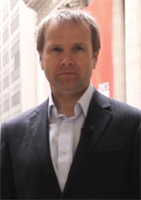There's a big change afoot in the investing industry, and you're going to start hearing about it very soon. An executive order signed last month by President Trump may enable broader access to what Morningstar analyst Jason Kephart calls "a $12-trillion retirement market that [asset managers] have previously not had access to." America's 90 million 401(k) participants can now invest in alternatives.
Once reserved for institutions and the wealthy, alternative investments are assets outside traditional stocks, bonds, and cash — such as private equity, hedge funds, real estate, commodities, or collectibles — often used for diversification and potentially higher returns, but typically with higher risk, lower liquidity, and less regulation.
Sean McKee, global head of asset management at KPMG, captured Wall Street's enthusiasm: "The doors to alternatives are opening wider than ever. Many leaders will see this as a business model opportunity."
But a critical question emerges for millions of Americans whose retirement security hangs in the balance: who really benefits when these doors swing open?
The answer requires understanding what Index Fund Advisors founder Mark Hebner calls "The Silent Partner Problem." As Hebner explains in Index Funds: The 12-Step Recovery Program for Active Investors, your portfolio becomes "vulnerable to these silent partners" who "add little value" while feasting on your returns.
With $9 trillion in 401(k) assets potentially flowing into higher-fee alternatives, American investors must evaluate: feed Wall Street's profit machine or build genuine retirement wealth through evidence-based investing.
The New Fee Collectors
Think of your cell phone bill, as Hebner explains in Step 7: Silent Partners. You see one monthly charge, but hidden fees flow to multiple entities — city tax, state tax, service fees. Similarly, 401(k) participants will see one "alternative allocation" while unknowingly paying a parade of intermediaries.
Traditional silent partners (stockbrokers, fund managers, market makers) are now joined by an entirely new extraction ecosystem:
Private equity managers collect 2% annual management fees plus 20% of profits ("carry"), regardless of performance versus public markets. Fund-of-funds operators add another 1-2% layer for "selecting the best" funds. Investment consultants earn hefty fees recommending complex strategies, despite Warren Buffett's warning: "No consultant in the world is going to tell you, 'just buy an S&P index fund and sit for the next 50 years.'"
Cryptocurrency adds more fee collectors: specialized custodians, trading platforms profiting from spreads, and crypto fund managers charging premiums for what research shows often behaves like a leveraged equity proxy rather than true diversification.
Most concerning are alternative asset administrators charging extra for complex reporting and valuation. Unlike stocks with transparent daily pricing, alternatives use "mark-to-model" valuations that obscure true risk and performance.
Benjamin Schiffrin from Better Markets warns: "Retail investors are going to be exposed to a completely different type of asset without necessarily realizing" the costs. Jason Kephart is blunt: "From the individual investor standpoint, that's where it's less clear after all the additional fees, the additional complexity, and less transparency."
Each silent partner takes their cut, year after year, decade after decade. As Vanguard founder John Bogle warned: "The miracle of compounding returns is overwhelmed by the tyranny of compounding costs."
The Real Cost: Your Retirement Wealth
The numbers tell a sobering story. Today's 401(k) participants pay 30-50 basis points in annual fees. The Financial Times reports alternatives could push this to 80 basis points. But this vastly understates reality.
When properly evaluated, private equity fees may total 3-4% annually, including management fees, carry, fund-of-funds charges, and additional costs such as leverage and illiquidity. Add consultant fees and specialized custody charges, and investors face systematic wealth drainage at shocking rates.
John Bogle's calculation from his 2012 PBS Frontline interview reveals the devastating math:
"Something like 70 percent of the market return goes to the purveyors of the services, Wall Street if you will, and 30 percent goes to the fund owners."
His question haunts every retirement saver: "Do you really want to invest in a system where you put up 100 percent of the capital, you take 100 percent of the risk, and you get 30 percent of the return?"
IFA's own research makes this concrete. Using Morningstar data through 2024, the firm analyzed what happened to $10,000 invested over 15 years. The average actively managed equity fund grew it to $32,590. An S&P 500 index fund reached $66,750.(Past performance does not guarantee future results.)
This illustration is for informational purposes only and should not be considered investment advice. Indexes are not available for direct investment. The search criteria include the oldest share class of any U.S. domiciled equity fund with an inception date prior to 1/1/2010. Funds with missing data points were excluded from the analysis. Schwab S&P 500 Index (SWPPX) is used as a proxy for index funds. Data sourced from Morningstar Direct on 9/5/2025.
Project this forward over a 30-year career. An investor contributing $6,000 annually could lose hundreds of thousands to fee extraction, transforming comfortable retirement into financial anxiety.
What Research Actually Shows
The promise driving this change — that alternatives deliver superior returns justifying higher costs — faces uncomfortable academic scrutiny.
Steven Kaplan and Antoinette Schoar's landmark study of 746 private equity partnerships reached a sobering conclusion: "average fund returns (net of fees) approximately equal the S&P 500." After paying all those silent partners, investors received stock market returns with less liquidity, more complexity, and higher risk.
Even Yale University, the poster child for alternative investing, reveals the challenge. Yale's own analysis shows 62 of 100 funds failed to exceed public market returns after fees. Only four of 30 venture capital funds with over $400 million beat a simple small-cap index.
Cryptocurrency fares worse. Analysis by Dimensional Fund Advisors shows Bitcoin exhibits extreme volatility at 4.06% daily versus 1.32% for the S&P 500. Rather than diversification, crypto behaves more like "leveraged equity proxies," in terms of correlation to stocks intensifying precisely when diversification matters most: during crises.
Warren Buffett's famous hedge fund bet provides compelling real-world evidence. Over ten years, his S&P 500 index fund delivered 7.1% annually while selected hedge funds managed just 2.2%. His conclusion: "Performance comes, performance goes. Fees never falter."
Factor-based research shows alternatives' promised diversification can be achieved more cheaply through systematic exposure to size, value, and profitability factors in public markets, without opacity, illiquidity, and fee extraction.
The evidence is stark: public pension funds have underperformed simple index strategies by 1-2% annually since 2008, largely due to expensive alternatives. Why should 401(k) participants expect different results?
The Evidence-Based Alternative
Genuine diversification and competitive returns don't require feeding armies of silent partners. IFA's approach demonstrates how investors achieve retirement goals through strategies that minimize costs while maximizing success probability.
IFA's factor-based approach captures return premiums from size, value, and profitability without private market complexity and fees. By maintaining systematic exposure to these academically-validated return sources, investors build portfolios historically outperforming both traditional index funds and expensive alternatives.
Warren Buffett, despite his active investing success, consistently advocates this approach: "Both large and small investors should stick with low-cost index funds." His reasoning is practical: "When trillions of dollars are managed by Wall Streeters charging high fees, it will usually be the managers who reap outsized profits, not the clients."
Mark Hebner's philosophy — maximizing what investors keep rather than what Wall Street takes — lies at the heart of successful retirement planning. "No investment is completely free from silent partners," he writes, "but passive investors use index funds, tax-managed index funds, and ETFs to retain as much money as possible."
The Choice Ahead
In summary, this regulatory shift towards alternative investments represents both opportunity and peril. While expanding access to "competitive returns and asset diversification" sounds appealing, the practical reality demands scrutiny of who truly benefits from increased complexity.
Kephart's analysis captures the fundamental tension: "On the asset manager side, it's a $12-trillion retirement market that they have previously not had access to. For them, there's certainly a lot of opportunity." The question for individual investors: does this opportunity translate into better retirement outcomes or simply higher profits for intermediaries?
Evidence suggests caution. Academic research consistently shows that after accounting for fees, taxes, and behavioral costs, complex strategies often underdeliver promised benefits. The silent partner problem (where intermediaries extract value while adding little) magnifies when dealing with opaque, illiquid investments resisting easy evaluation.
For 401(k) participants navigating this landscape, core principles remain unchanged: understand total costs, focus on evidence-based strategies, and resist complexity marketed as sophistication.
IFA's risk capacity framework provides systematic portfolio building without falling prey to marketing-driven complexity. By matching risk exposure to individual circumstances and maintaining discipline through market cycles, investors can pursue retirement goals while keeping returns for themselves rather than silent partners.
American investors stand at a crossroads: keep feeding Wall Street's extraction machine, or build lasting wealth through transparent, low-cost, evidence-based investing. Over the years, that decision will shape whether retirement brings genuine financial freedom — or forces you to settle for less than your money could have delivered.
ROBIN POWELL is the Creative Director at Index Fund Advisors (IFA). He is also a financial journalist and the Editor of The Evidence-Based Investor. This article reflects IFA's investment philosophy and is intended for informational purposes only.
Disclosure:
This content is for informational purposes only and is not intended as investment, tax, or legal advice. All investments involve risks, including the possible loss of principal. There is no assurance that any strategy will achieve its investment objectives, and past performance does not guarantee future results.
Alternative investments may involve higher fees, lower liquidity, greater complexity, and higher risk when compared to traditional investments. Investors should carefully evaluate their risk tolerance, time horizon, and financial goals before investing in alternative assets.
The hypothetical illustrations and academic research described here are for educational purposes only. Any analysis is based on historical data and is not indicative of future results or performance. Additionally, indexes mentioned in the article are unmanaged and cannot be directly invested in.
Index Fund Advisors, Inc. (IFA) supports a passive, evidence-based investing approach and may recommend portfolios featuring these principles. For additional information about IFA, including detailed information about services, compensation, and potential conflicts of interest, please review our brochure available both at www.adviserinfo.sec.gov and www.ifa.com.
Please consult with a qualified financial professional for personalized advice prior to making investment decisions.














